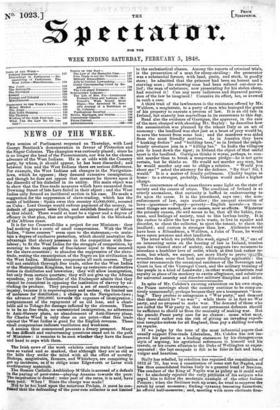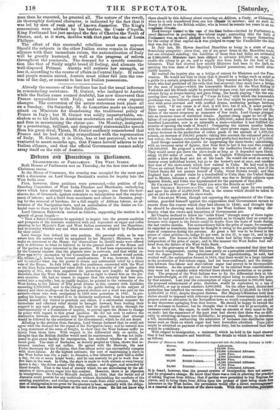Sicily has rebelled, by rebellion has regained.the constitution of 1812
or '21, has won a constitution of some sort for Naples, and has thus consolidated Italian Italy in a general bond of freedom. The conduct of the King of Naples was as paltry as it could well be : he absolutely rejected the early petitions of his subjects who urged him to follow the moderate example of the other Italian Princes ; when the Sicilians took up arms, he tried to suppress the revolt by cruel measures; finding tyranny. becoming hazardous,' he offered half-measures ; and, meeting with more obstinate firm-
ness than he expected, he granted all. The nature of the revolt, its thoroughly national character, is indicated by the fact that it was led by men of rank and of known discretion. The Kingoe concessions were advised by his brother, the Coate d'Aq4n, King Ferdinand has just escaped the fate of Charles the Tenth c France, and, as it were, doubles with that part the one of Philippe.
The effect of this successful rebellion must soon appear. Should the subjects in the other Italian states remain in discreet alliance with their immediate rulers, the nationalization of Italy will be greatly hastened, as well as the progress of reform throughout the peninsula. The demand for a specific constitu- tion like that of Sicily might breed ill feeling, and alienate the well-disposed Princes. Austria will retrieve her strength, or lose it, according to the course of affairs in Central Italy. If rulers and people remain united, Austria must either fall into the cus- tom of the day, or consent to lose her Italian possessions.



























 Previous page
Previous page